
If you haven’t marked your calendar yet, you might be the only one. The 2016 Rio Olympics are predicted to be the most-watched television event in U.S. history (topping the 219 million viewers of the London Games). Despite Zika, water pollution and extreme political unrest, Rio will be the last stand for some of the most accomplished athletes the world has ever seen: Michael Phelps, Usain Bolt, Kerri Walsh Jennings, Serena Williams — the list goes on.
But perhaps no arena will be more alive than Rio’s Engenhão Olympic Stadium track. From a 40 (yes 40!) year-old sprinter, Kim Collins, to American legends-in-the-making Allyson Felix and Ashton Eaton, the field is, as they say, stacked. And don’t discount the inaugural refugee team, as five South Sudanese track and field athletes re-write their history on the track. Here’s a closer look at why you should tune into every second of the Olympic Track and Field events.
RELATED: In the Gym with Sanya Richards-Ross
All Eyes on Track and Field: 6 Stories to Watch
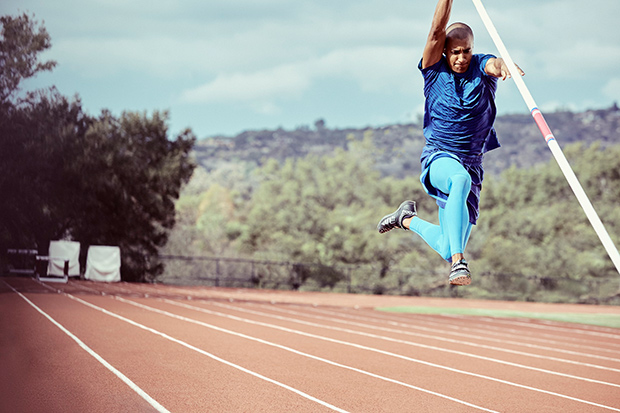
1. The World’s Greatest Athlete
Scratch that. The world’s greatest athlete…of all time? That’s how experts are billing Ashton Eaton, the overwhelming favorite for the 2016 Olympic Decathlon, also known as the most grueling 10-part display of athleticism, speed, agility and strength that won Eaton a gold medal and a world record in 2012.
“His sheer athleticism and laser focus are just part of what makes him so exciting to watch,” says Julia Lucas, a former teammate of Eaton’s and Nike+ Run Club (NRC) Head Coach in NYC.
Not only must the decathletes excel in 10 disparate events over the course of two 15-hour days, they must be extremely smart and mentally tough, Lucas says. (More on Eaton’s game-day strategy here). “You can bet Ashton is thinking about where the wind is coming from, if the ground is wet that day, how his competitors are looking — and if he has to do something big and daring or if he has to keep it safe.”
If the Nike-sponsored athlete repeats in Rio, that will make him the first two-time decathlon gold medalist since Daley Thompson of Great Britain in 1988 and 1992. “Just watching him is being a part of history,” Lucas says.
2. A Place for Refugees
If there’s one thing that moves us every four years, it’s the feeling of hope that surrounds the Olympic Games. And that’s especially true this year, as Rio welcomes its first ever Refugee Olympic Team (ROT). The team will be comprised of 10 athletes displaced by war and social unrest in their native countries, including five South Sudanese track and field athletes, one Ethiopian marathoner, two Congolese judokas and two Syrian swimmers.
According to IOC president Thomas Bach, “This will be a symbol of hope for all the refugees in our world, and will make the world better aware of the magnitude of this crisis. It is also a signal to the international community that refugees are our fellow human beings and are an enrichment to society.” Expect a heartfelt welcome at the Opening Ceremonies and in the Olympic village, a home the ROT athletes say they’re eager to share with others from around the globe.
RELATED: The 20 Most Inspiring Runners in the U.S.
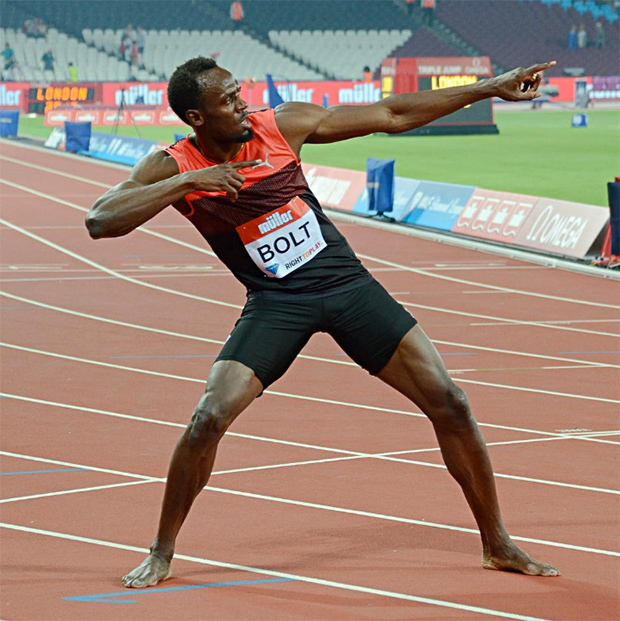
3. One Last Bolt to the Finish
You heard it right: Rio will likely be Jamaican sprinter Usain Bolt’s last hurrah. His goal: Nabbing gold in the 100 meters, 200 meters and 4×100-meter relay for the third consecutive time. But after a slight hamstring tear that forced him to pull out of the Jamaican trials, the elusive “treble-treble” might be a stretch for the Lightning Bolt. (Let’s not forget the USA’s ever-controversial Justin Gatlin who was just one-hundredth of a second behind Bolt at the World Championships in Beijing last year.)
Plus, there’s a new class of young sprinting sensations — including USA’s Travon Brommell and Canada’s Andre DeGrasse — both hungry for a spot on the podium. (What were you doing at age 21, btw?) One guarantee: These heats will be fast. And the smack talking will be furious.
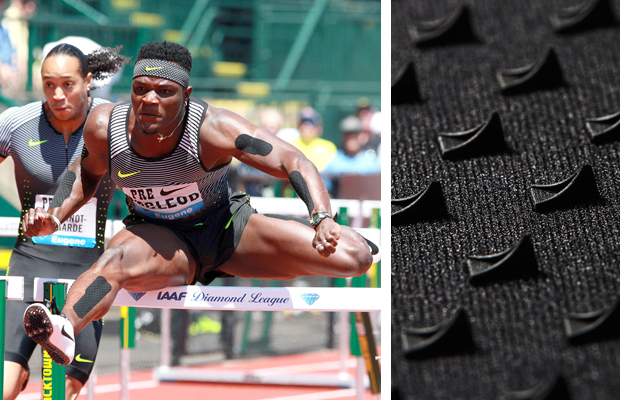
4. Next-Level Tech
What’s the biggest drag for runners? In a word: drag. That’s why apparel sponsors have been back in the lab to develop the most aerodynamic kits for their athletes. And Nike, with its new AeroSwift technology, is hoping to pull away from the pack. Look closely (HD preferred) and you’ll spot tiny rubber spikes across the fabric, aka Nike AeroBlades, adhered to areas of the highest wind resistance. Nike athletes will also sport them directly on their skin with kinesiology-like tape. According to Nike, the proprietary magic blades “aim to cut a measurable podium-making fraction of a second from sprinters’ times and multiple seconds from marathon runners’ records.” Forget the Jetsons — the future is now.
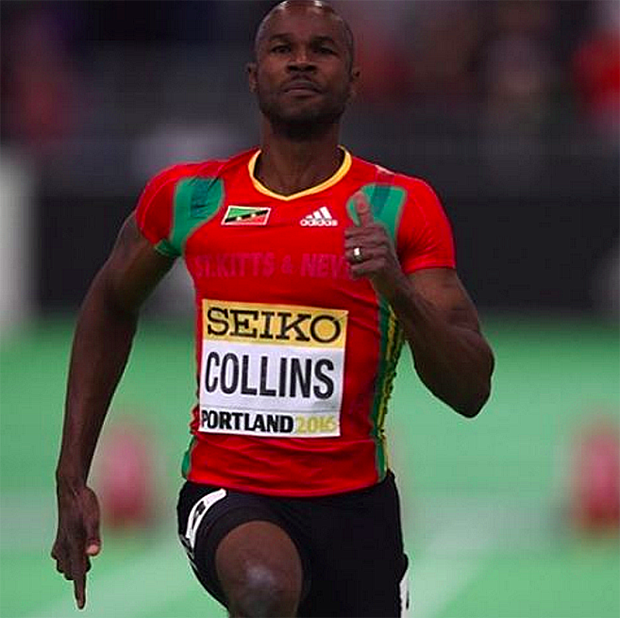
5. This 40-Year-Old Sprinter
While it’s not uncommon for distance runners to peak a bit later in life (err, early 30s), it’s basically unheard of to dominate sprint events in those sunset years. Enter: Kim Collins, the 40-year-old phenom who will be representing St. Kitts and Nevis in Rio. This will be his sixth, yes sixth, Olympic Games. And though it’s unlikely the 2003 100-meter world champ will medal, we’re considering this a win for the Gen X demographic. (We’re also mildly obsessed with 41-year old gymnast Oksana Chusovitina of Uzbekistan, who will be the oldest Olympic female gymnast in history — by a lot. She might even be a medal contender.)
RELATED: 10 Athletes Over 60 Who Can Kick Your Butt
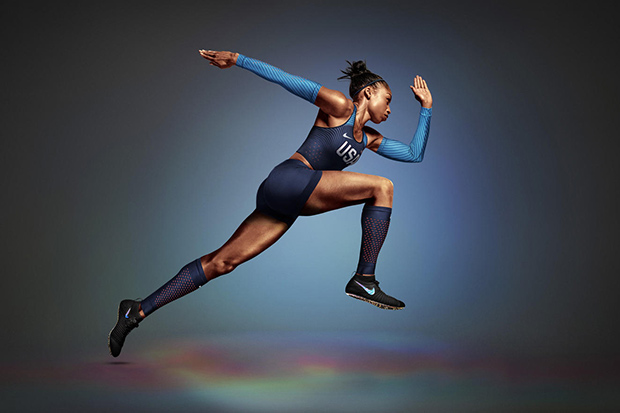
6. America’s Sweetheart, Allyson Felix
This isn’t where we gush about how smart, likable and gorgeous Allyson Felix is. (OK fine, we just did.) The numbers tell a pretty compelling story on their own: six Olympic medals, four individual world championships, and, at the ripe age of 30, this will be her fourth Olympic appearance. The Golden Girl of the track is also a vocal advocate for clean sport. “In this Olympics, where drugs have been such an issue, and with Russia being banned, Felix is just someone you can be confident in,” Lucas says. If she wins the 200 and 400 meters in Rio, that will make her the third woman in Olympic history to do so. Considering her 2012 gold in the 200 meters and her reigning world championship title in the 400, Team USA should be feeling pretty golden right now.
The 2016 Olympic Track and Field events will take place during the last 10 days of the Games, from August 12-21. Watch live on NBC, at NBCOlympics.com or via the NBC Sports app.
Note to reader: This story was reported from the USATF Olympic Trials in Eugene, OR, on a media trip sponsored by Nike.
